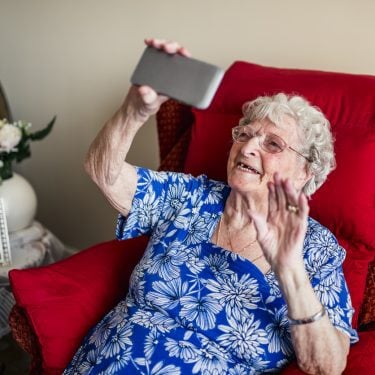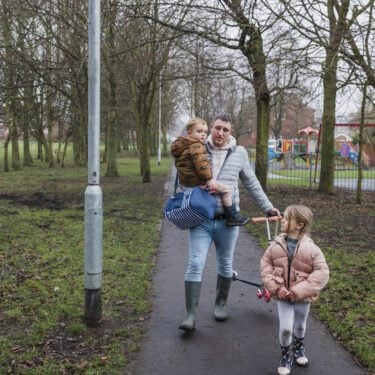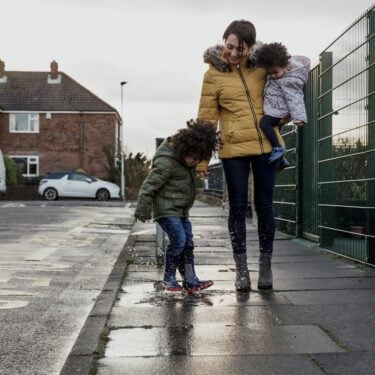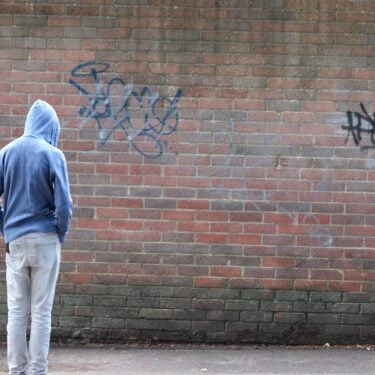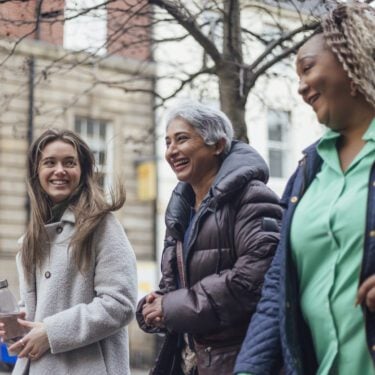The Nuffield Foundation has awarded £1.6 million for research on the social implications of the COVID-19 emergency as they emerge in real time, including how best to mitigate the impact on those who are worst affected such as families on low incomes.
Following a rapid response call for proposals, the Foundation has funded seven teams of social scientists to conduct research contemporaneously with the spread of the virus, capturing in real time people’s experiences of the social, cultural and economic impacts of the pandemic.
Collectively, these projects will provide crucial, and rigorous, evidence to inform the public policy response to COVID-19 on key issues such as the social and economic impact on low income families, educational outcomes, community cohesion, navigating the ‘infodemic’ and the appropriate balance between freedom and restrictions during lockdown. As well as providing essential analysis on the pandemic’s social impacts, the research will identify policy options to mitigate the risks faced by the most vulnerable both in the short and longer term.
About the research projects
- Psychological and social experiences of adults in the UK during the pandemic led by Dr Daisy Fancourt (UCL). Awarded £333,302 over two years.
This project is exploring the psychological and social experiences of adults, capturing changes as people enter self-isolation, across the period of self-isolation, and as measures are relaxed. Over 50,000 adult volunteers are providing weekly responses to the UCL COVID-19 survey, which began as the lockdown was announced (23 March) and will run for at least six months. Participants can join the survey panel, here.
The survey will be complemented by interviews with 150 people from specific subgroups: young adults, healthy adults, adults with a long-term physical health condition, adults with a mental health condition, older adults, freelance workers, front-line healthcare workers, and other key workers. The team are part of the committee advising government when to lift the lockdown.
- How does the UK public get information about COVID-19 and responses to it? led by Professor Rasmus Nielsen (Reuters Institute, University of Oxford). Awarded £142,068 over 8 months.
A fortnightly survey to an initial UK representative panel of 2,500, will examine how people find information about COVID-19, what sources of information and channels they find most credible and whether they are concerned about misinformation. The project will assess how knowledgeable people are about basic facts around the virus, and how people, partly on the basis of the information they access, are responding to the pandemic. The first wave of the survey took place on Good Friday and it is expected to run for six months.
- COVID-19 and families on a low income, led by Dr Ruth Patrick (University of York). Awarded £277,043 over 18 months.
This project will investigate how families in poverty are experiencing the COVID-19 pandemic. Working with the Child Poverty Action Group, and using data from their Early Warning System, the team will collect real time data to inform policymakers about how effectively the social security system is responding to new pressures. The project will also use a participatory research design to enable families to share and exchange their experiences to document families’ lived experiences during the pandemic. In addition, the project will create networks for researchers of poverty to explore how to examine the impact of COVID-19 ethically and sensitivity.
- Beyond ‘us’ and ‘them’: societal cohesion in the context of COVID-19, led by Professor Dominic Abrams (University of Kent). Awarded £234,559 over 9 months.
This project will examine the impact of the pandemic on community cohesion and whether it is helping or hindering intergroup relations, in partnership with Belong – the Cohesion and Integration Network. Building on their existing data looking at societal cohesion during Brexit, the team will conduct longitudinal surveys, over six months, of representative samples in Kent, Scotland and Wales, and in five English Local Authorities. This will be combined with collecting qualitative data, including insights from community activists. The research will enable better understanding of behaviour changes, community engagement and cohesion over time.
- The effect of the COVID-19 pandemic on families’ time-use and child development, led by Dr Sarah Cattan (Institute of Fiscal Studies). Awarded £180,835 over two and a half years.
Children and young people’s education has been affected by the pandemic. The team will survey 6,000 families with children aged under 17 early and later in the summer term, to explore economic circumstances, time-use, and socio-emotional well-being during the pandemic. With ethical permissions in place, and linkage to other datasets, the researchers will explore the impact of COVID-19 on pupil achievement, and other outcomes such as attendance rates, and school exclusions, in the short- and medium-term.
- Law and compliance during COVID-19, led by Dr Joe Tomlinson (University of York). Awarded £182,309 over 17 months.
This project will track the expansion of governmental powers and the introduction of restrictions in the UK in response to the COVID-19 crisis. The team will explore the significance of rights consciousness and perceptions of governmental fairness for public compliance with new restrictions, including social distancing. Through online focus groups, interviews, and surveys with the public, the team will provide insights to inform government responses on public health emergencies, to ensure they find the appropriate balance between protecting freedoms and necessary restrictions.
- Growing up under COVID-19, led by Laurie Day (Ecorys UK Ltd). Awarded £249,380 over 18 months.
Researchers will document the lived experiences of young people aged 14-18 in seven countries: the four nations of the UK, Italy, Singapore and Lebanon, at different stages of the crisis to explore how differing social, political and economic contexts affect young people’s experiences. Seventy young people will take part in interviews and focus groups, combined with analysis of their social media and blog data. It is intended that this evidence-base will ensure policy responses consider impacts on children and young people.
“The COVID-19 pandemic is now recognised as being far more than a global crisis in public health; it is having a wide-reaching impact on all aspects of our society and in many cases is already exacerbating inequality and disadvantage. We have funded these projects to ensure the research takes place as the crisis develops, with new evidence captured week by week. In this way, the projects will increase understanding of the full extent of the social impacts of the pandemic; our aim is to identify how these might be mitigated, and to help shape a coherent and comprehensive policy response that secures the well-being of our society in its aftermath.”Tim Gardam, Chief Executive of the Nuffield Foundation
Funding opportunities
These research grants have been awarded following a rapid response call that is now closed. However, the Nuffield Foundation welcomes more long-term research proposals on the implications for social well-being of the COVID-19 pandemic in its usual funding rounds. The next deadline for applications for research, analysis and development grants is September 2020. Potential applicants can find out more about our funding opportunities on our website and check their eligibility for funding.




